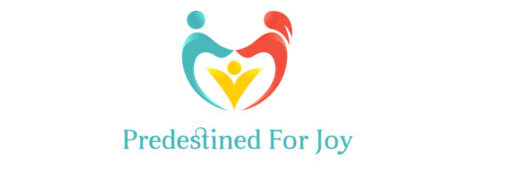Title: When Do Kids Get the Measles Vaccine? A Complete Guide for Parents
Wondering when your child should get the measles vaccine? Learn the recommended measles immunization schedule, benefits, and safety information. Watch our latest video for expert insights!
Introduction The measles vaccine is a critical part of childhood immunization, protecting children from a highly contagious and potentially dangerous disease. Many parents have questions about when their child should receive the measles vaccine, how effective it is, and why it’s important. This guide will walk you through the measles vaccination schedule, benefits, and what to expect. Watch our latest YouTube video for expert insights on measles immunization: https://youtu.be/11qbzsIk54Y?si=2BK9MiZJIDxF_ZyV.
When Do Kids Get the Measles Vaccine?
The measles vaccine is typically given as part of the MMR (Measles, Mumps, and Rubella) vaccine in two doses:
✅ First Dose: Given at 12 to 15 months old ✅ Second Dose: Given at 4 to 6 years old (before starting school)
The second dose can be administered earlier, as long as it is at least 28 days after the first dose. This schedule ensures that children develop strong immunity against measles.
Why Is the Measles Vaccine Important?
Measles is a highly contagious viral disease that can lead to serious complications, including:
- Pneumonia (a leading cause of measles-related deaths)
- Brain inflammation (encephalitis), which can cause permanent damage
- Severe diarrhea and dehydration
- Pregnancy complications (if a woman contracts measles while pregnant)
Vaccination is the most effective way to prevent measles and protect both children and the community.
How Effective Is the Measles Vaccine?
🔹 One dose: About 93% effective in preventing measles. 🔹 Two doses: About 97% effective, providing lifelong immunity in most cases.
Can Babies Get the Measles Vaccine Before 12 Months?
In special cases, babies 6 to 11 months old may receive an early MMR dose if: 📌 They are traveling to a country with high measles cases. 📌 There is a measles outbreak in their area. 📌 They are at high risk of exposure due to medical reasons.
However, babies who receive an early dose will still need two additional doses after their first birthday for full protection.
Common Side Effects of the Measles Vaccine
Most children experience mild or no side effects from the MMR vaccine. The most common side effects include:
- Low-grade fever 🤒
- Mild rash 🏵️
- Temporary swelling at the injection site 💉
Serious side effects are extremely rare, and the benefits of vaccination far outweigh the risks.
Who Should NOT Get the Measles Vaccine?
Children should not receive the MMR vaccine if they:
- Have a severe allergic reaction to a previous MMR dose.
- Have a weakened immune system due to illness or medication.
- Are currently experiencing severe illness (mild colds are not a problem).
If you have concerns, consult your pediatrician before vaccination.
Measles Vaccine & Herd Immunity: Why It Matters
📌 When 95% or more of the population is vaccinated, measles cannot spread easily, protecting those who cannot be vaccinated (such as infants and immunocompromised individuals). This is called herd immunity.
Final Thoughts
The measles vaccine is a safe, effective, and essential part of childhood immunization. Sticking to the recommended vaccination schedule ensures strong immunity and protects your child from dangerous complications. Watch our full video for more expert advice on the MMR vaccine: https://youtu.be/11qbzsIk54Y?si=2BK9MiZJIDxF_ZyV.
📌 Don’t forget to like, comment, and subscribe for more parenting and health tips!



I’ve been struggling with this matter, thanks for providing some insight.
Thank you for taking the time to explore and compile such helpful data.
Hi there, this weekend is nice designed for me, since this occasion i am reading this
impressive informative article here at my residence.
Hi, after reading this awesome piece of writing i am
too delighted to share my know-how here with colleagues.
Your sense of humour is evident, I laughed out loud.
Awesome https://is.gd/tpjNyL
Awesome https://is.gd/tpjNyL
Awesome https://shorturl.at/2breu
Very good https://shorturl.at/2breu
Very good https://shorturl.at/2breu
Good https://shorturl.at/2breu
Good https://shorturl.at/2breu
Good https://lc.cx/xjXBQT
Very good https://lc.cx/xjXBQT
Awesome https://lc.cx/xjXBQT
Awesome https://t.ly/tndaA
Awesome https://t.ly/tndaA
Awesome https://t.ly/tndaA
Awesome https://t.ly/tndaA
Very good https://urlr.me/zH3wE5
Good https://urlr.me/zH3wE5
Good https://rb.gy/4gq2o4
Good https://rb.gy/4gq2o4
Awesome https://rb.gy/4gq2o4
Very good https://rb.gy/4gq2o4
Good https://rb.gy/4gq2o4
Very good https://rb.gy/4gq2o4
Good https://rb.gy/4gq2o4
Awesome https://is.gd/N1ikS2
Awesome https://is.gd/N1ikS2
Awesome https://is.gd/N1ikS2
Awesome https://is.gd/N1ikS2
Good partner program https://shorturl.fm/m8ueY
Awesome https://shorturl.fm/5JO3e
https://shorturl.fm/TbTre
https://shorturl.fm/9fnIC
https://shorturl.fm/oYjg5
https://shorturl.fm/a0B2m
https://shorturl.fm/A5ni8
https://shorturl.fm/N6nl1
https://shorturl.fm/YvSxU
https://shorturl.fm/68Y8V
https://shorturl.fm/j3kEj
https://shorturl.fm/68Y8V
https://shorturl.fm/m8ueY
https://shorturl.fm/9fnIC
https://shorturl.fm/6539m
https://shorturl.fm/YvSxU
https://shorturl.fm/LdPUr
https://shorturl.fm/47rLb
https://shorturl.fm/YZRz9
https://shorturl.fm/f4TEQ
https://shorturl.fm/IPXDm
https://shorturl.fm/I3T8M
https://shorturl.fm/IPXDm